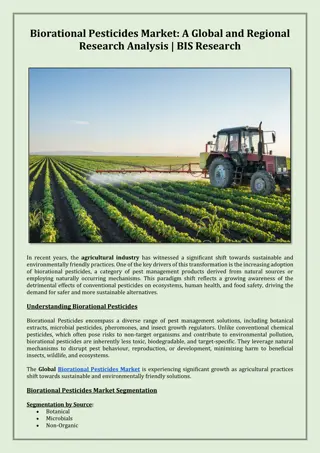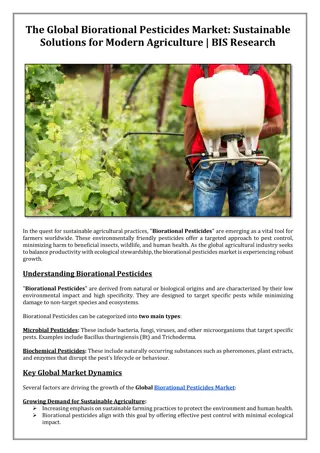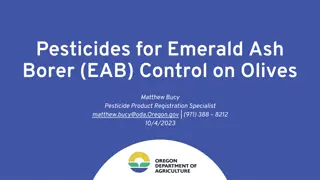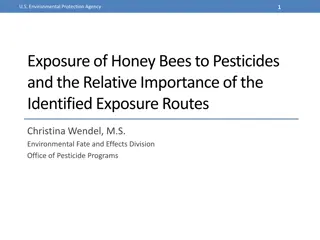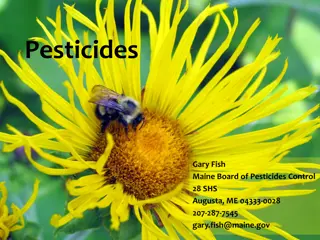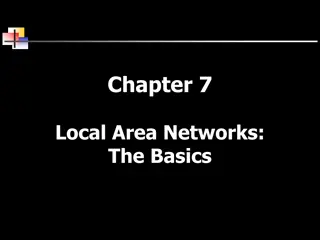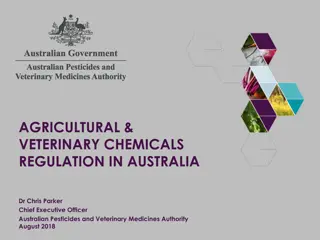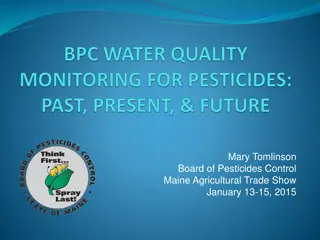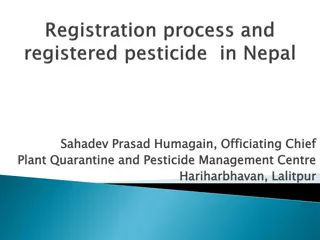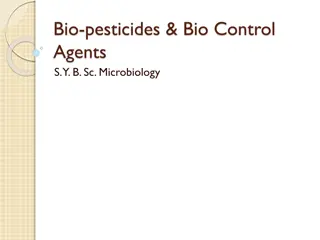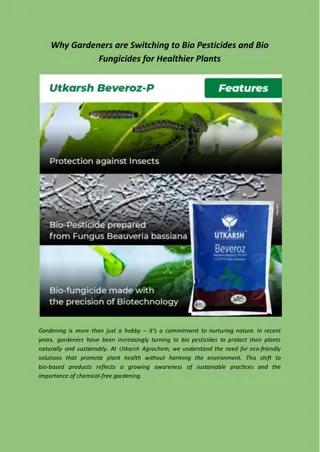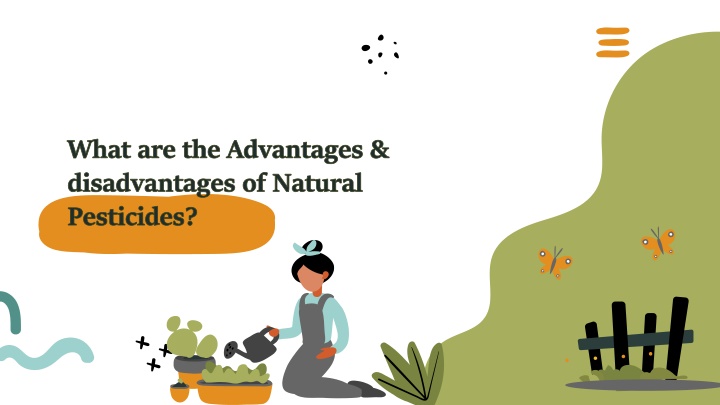
Pros and Cons of Natural Pesticides
Explore the advantages and disadvantages of natural pesticides, including their effectiveness, safety, and impact on the environment. Learn how they compare to synthetic pesticides and their role in pest control.
Download Presentation

Please find below an Image/Link to download the presentation.
The content on the website is provided AS IS for your information and personal use only. It may not be sold, licensed, or shared on other websites without obtaining consent from the author. If you encounter any issues during the download, it is possible that the publisher has removed the file from their server.
You are allowed to download the files provided on this website for personal or commercial use, subject to the condition that they are used lawfully. All files are the property of their respective owners.
The content on the website is provided AS IS for your information and personal use only. It may not be sold, licensed, or shared on other websites without obtaining consent from the author.
E N D
Presentation Transcript
What are the Advantages & disadvantages of Natural Pesticides?
Introduction A Natural pesticide is a substance that disrupts or kills organisms that we consider to be pests such as weeds, damaging insects, or microbes that cause disease. Pesticides that are made by other organisms, usually for their own defense or that comes from a natural source like a mineral or a plant are called natural pesticides. Although this is generally true, not all natural pesticides are always safer or better for the environment than man-made pesticides. Nicotine, for instance, is the highly addictive component of cigarette smoke and a natural pesticide found in tobacco leaves, but it is actually much more toxic than the majority of modern synthetic pesticides. Although some natural pesticides are extremely harmful, the majority are actually safer and better for the environment than conventional pesticides. Natural pesticides should be your first choice for most home and garden pest control needs because they are also very effective. A pesticide is a substance that is used to keep unwanted plants, animals, and other organisms from growing and causing harm to people, plants, and animals.
Herbicides: The primary purpose of these is to stop weeds from growing in the crop field. It helps to disturb the favorable conditions necessary for plant growth. Fungicides: Fungi can be controlled or eradicated with the assistance of these pesticides.
Rodenticides: Chemicals that are used to kill rats, mice, and other rodents make up this. Under the regulations, rodenticides can also be used to control fish, birds, and mammals. Insecticides: It aids in the control of insects, flies, mosquitoes, and other pests. Pesticides rapidly control insect growth by degrading their nervous systems.
It helps to protect the storage: Protecting the crop from rodents and other pests can sometimes be challenging after harvest. Pesticides aid in pest prevention, and they are easy to store and last longer. Pesticides help in preventing insects, rodents, and viruses at home, offices, etc: Pesticides aid in the elimination or control of a large number of insects, rodents, and viruses that can infect humans and spread a variety of diseases.
Advantages of Pesticides Advantages of Pesticides Pesticides help in an abundant harvest: Utilizing pesticides ensures that crops are pest-free and fit for harvest. Crops are protected from damage and infection by pesticides.
Pesticides help to prevent insects and waterborne transmission diseases: Malaria, Lyme, and other diseases can be avoided with the help of pesticides. It aided in the prevention of numerous diseases and improved human health. Pesticides help farmers to grow more crops in the same or less land: When there are fewer pests in crop fields, there are more chances that crops will be produced on the same land. Farmers stand to benefit more from a rise in productivity of between 40% and 50%.
Pesticides helped in making it easy to remove weeds or prevent pests without hardship: It took a long time to pick weeds by hand, which hurt productivity, and pesticides now make it easy to get rid of some pests that were bad for plants' growth.
Disadvantages of Pesticides Disadvantages of Pesticides Impact on human health: Consuming toxic food on a regular basis has a direct and significant impact on human health. Pesticides, which are present in a variety of forms all around us, are the cause of so many diseases like asthma, allergies, and cancer. Negative effect on other life species: The chemical kills a variety of pests that harm crops, as well as some species that can be beneficial to crops. When pesticides are used in the area, butterflies, bees, and other soil organisms die.
Environmental pollution: Pesticides that are used excessively by some farmers pollute not only the soil but also the underground water. Genetic defects: Pesticide use over and over again has a negative long-term effect on soil fertility. Affect in pollination: Pesticides affect how bees and butterflies naturally pollinate crops, which lowers yields.
Thanks! Do you have any questions? healthyts.com info@healthyts.com 7350601238,9075128995 Address: 244, Vairagade Complex, Nandanvan Square, Nandanvan, Nagpur. India. 440009

